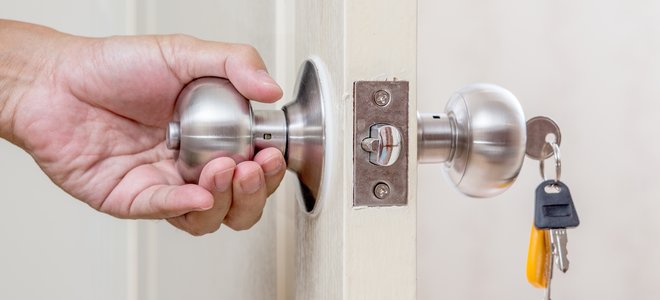We’ve all been there—standing in front of a door with a key that just won’t budge. Whether it’s a car, home, or office lock, a stuck key can turn a routine moment into a stressful situation. The good news?
With the right knowledge and a bit of patience, you can resolve the issue or know when to call in the professionals. In this guide, we’ll walk you through what to do when a key gets stuck in a lock and highlight the critical role a locksmith plays in both preventing and solving this common problem.
Common Causes of a Stuck Key
Before diving into solutions, it helps to understand why keys get stuck in the first place. Some common reasons include:
- Worn-out or bent keys – Over time, keys can become worn or slightly bent, making it difficult for them to align properly with the lock’s internal pins.
- Dirty or jammed locks – Dust, debris, or rust inside the lock cylinder can prevent the key from turning or sliding in and out smoothly.
- Incorrect key usage – Accidentally using the wrong key or forcing a key into a similar-looking lock can jam it.
- Damaged lock mechanism – Mechanical wear and tear, especially in older locks, can result in internal misalignments that trap the key.
What You Can Do Before Calling a Locksmith
While it might be tempting to force the key out, this could worsen the problem or break the key entirely. Try the following steps first:
1. Gently Wiggle the Key
Apply slight pressure and gently wiggle the key from side to side while pulling outward. Avoid using excessive force. This can often help dislodge minor misalignments in the lock pins.
2. Lubricate the Lock
A dry lock is a common reason for a stuck key. Use a graphite-based lubricant or a silicone spray (avoid oil-based lubricants like WD-40, as they can attract dirt). Insert the nozzle into the keyhole and spray lightly, then try wiggling the key out.
3. Check for Debris
Inspect the keyhole for visible debris or dirt. Sometimes, a quick blow of compressed air can help clear out obstructions.
4. Use a Flat Object
If the key is slightly out but won’t budge further, a thin flat object (like a credit card corner or flathead screwdriver) can be gently inserted to press against the lock while easing the key out. Exercise caution to avoid damaging the lock.
5. Ice the Key (If Applicable)
In cases where heat or humidity causes the key to expand, gently cooling the key with ice wrapped in a towel for a few seconds can cause it to contract and slip out more easily.
When to Call a Locksmith
If the above techniques don’t work, or if the key breaks off in the lock, it’s time to call a professional. This is where a locksmith in Harlow becomes an invaluable resource.
The Locksmith’s Role
Locksmiths are trained professionals skilled in dealing with all types of locks and keys. When faced with a stuck key, they bring:
- Expert Tools and Techniques: Locksmiths use specialized tools like key extractors, tension wrenches, and pick sets to safely remove keys without damaging the lock.
- Damage Prevention: A DIY approach can often lead to broken keys or ruined locks. A locksmith minimizes these risks and often saves you money in the long run.
- Repair and Replacement: If the lock is faulty, a locksmith can repair or replace it on the spot, restoring security and functionality.
- Key Duplication and Rekeying: Once the issue is resolved, a local locksmith can provide duplicate keys or rekey the lock to prevent future problems, especially if the original key was damaged or compromised.
Many locksmiths also offer emergency services, meaning they’re available 24/7 in case you’re locked out late at night or during inclement weather.
How to Prevent Future Incidents
Prevention is key—literally. Here are a few tips to avoid stuck key problems in the future:
- Inspect your keys regularly for wear, bending, or cracks. Replace damaged keys promptly.
- Clean and lubricate locks periodically, especially outdoor ones exposed to the elements.
- Avoid forcing keys into locks that seem difficult to turn. This can worsen the problem.
- Use keys as intended—don’t use them to pry open boxes, tighten screws, or other non-lock tasks.
- Get duplicates made by professionals, as poorly cut keys are more likely to cause issues.
Conclusion
While a stuck key can be frustrating, it doesn’t have to ruin your day. With calm, informed steps and a little know-how, many minor cases can be resolved on your own. But when the situation calls for it, don’t hesitate to contact a qualified locksmith.
Their tools, experience, and quick service can turn a lock crisis into a simple fix—and might even save you from a more expensive repair later on. Think of them as your lock-and-key guardian angels, ready to step in when you need them most.


